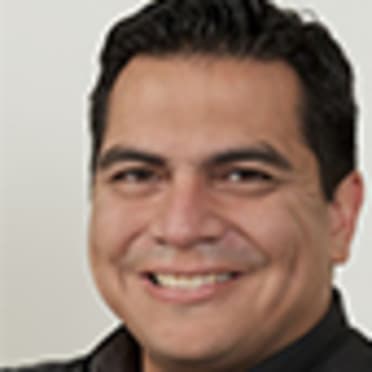Four of the biggest names in baseball’s past and present recently came together to discuss the international game on and off the field, along with the impact of Latinos across the sport as part of MLB’s Hispanic Heritage Month Roundtable.
"Being Latino in Baseball and America," which was produced by MLB Originals, features an unprecedented look inside the minds of Hall of Fame pitcher Mariano Rivera (Panama), San Diego Padres shortstop Fernando Tatis Jr. (Dominican Republic), Cleveland Indians shortstop Francisco Lindor (Puerto Rico) and former Major League pitcher Johan Santana (Venezuela).
This roundtable tells their story in their own words and provides a great opportunity for fans to understand where these players come from and where the game is going. It’s an inside look at the game within the game.
Among the many highlights:
• Find out what international scouts had to say about Tatis the first time they saw the teen in the D.R. and why Lindor felt it was necessary for him to move to the United States from Puerto Rico.
Watch Rivera tell the incredible story of how he was discovered, and listen to Santana discuss the rise of baseball in Venezuela and the role the sport plays in his country.
“How they found me was a miracle,” Rivera said. “I had no clue about pitching.”
• Watch Tatis and Lindor discuss what the “unwritten rules” mean to them and how they navigate the new school vs. old school approaches to the game while also staying true to themselves. Have you ever wondered how Rivera and Santana would pitch against Lindor and Tatis and their reaction would be if the pair hit home runs and then flipped their bats? Those answers and more are part of the roundtable.
“You just have to keep [the unwritten rules] in the back of your head when you are playing and you just have to respect that baseball is a little bit different over here,” Tatis said. “But after that, I feel like we are all good. We still celebrate. We still have fun. We still play the game with joy and love.”
• Watch the stars give firsthand accounts of learning a new language, succeeding in a different culture and adjusting to a new way of life in the United States. Hear them discuss their personal difficulties and triumphs, as well as why they believe it’s important for them to connect with English- and Spanish-speaking fans across the globe.
“I was blessed to go to middle school and high school in the States, so when I first came, I had no idea what the books were saying,” Lindor said. “You go from Puerto Rico, where everything is in Spanish and one class in English, to everything [being] in English [in the United States]. You would sit down in class lost.”
• How do these stars and others like them honor their baseball predecessors and their country? What does it mean to be a Latino baseball player in the game today?
“We represent a lot,” Santana said. “Not just for yourself or your family, but your whole country. … I knew on [the back of my jersey] it wasn’t just Santana. It was Venezuela, because I knew those people were watching that game. I knew they were cheering for me.”
